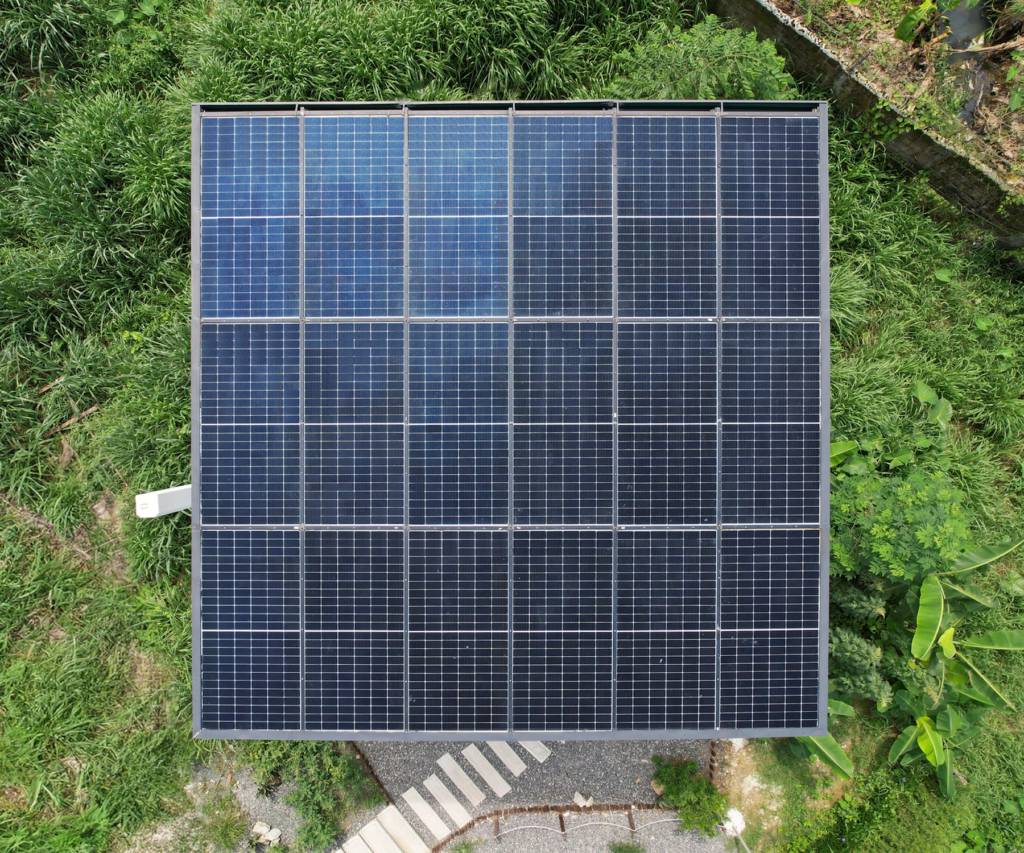An in-depth exploration of Indonesia’s preparation for the economic impacts of climate change, highlighting endeavors towards resilience and sustainable practices.
In the vast tapestry of our world, we find ourselves drawn to the rhythm of nature—an endless waltz of serene beauty intertwined with wild resilience. But as the rhythm stutters, disrupted by erratic weather patterns and rising sea levels, a critical question arises: how do we adapt to this shifting melody of nature?
Journey with us through the lush archipelago of Indonesia as we witness a land fervently embracing its climatic challenges and becoming a symbol of unwavering hope. Explore how this nation is shaping an incredible future, channeling disaster into innovation and steering towards resilience amidst climate change’s daunting presence.
Embracing the Challenge: Indonesia’s Stand in the Climate Change Ring
In the heart of the mighty Pacific, Southeast Asia is both enriched and challenged by its environment. Here, nature’s blessings and threats intertwine—lush rainforests and vibrant ecosystems coexist with earthquakes, tsunamis, and the increasingly pressing issue of global climate change.
In this era of unprecedented change, we face a stark reality: climate change. Seas are rising, patterned rainfalls are becoming unpredictable, and our surroundings demand our attention. Though often unseen, the economic implications of climate change slyly weave throughout our societies, predominantly leaving their marks upon the fertile soils and cerulean seas.
With this, Indonesia, home to over 270 million individuals, is at the forefront. They contribute merely 1.2% of the world’s greenhouse gas emissions, so they grapple with the fourth longest coastline’s vulnerability.
Resilience Amidst Turmoil: Indonesia’s Economic Impact Assessment
By 2050, Southeast Asia foresees a daunting potential loss of over 35% in gross domestic product due to climate change and natural hazards. Farming, tourism, and fishing—enterprise sectors vital to Indonesia—find themselves in the line of fire.
Imagine bustling rice paddies growing barren due to unpredictable weather patterns, holiday hotspots losing their charm to rising sea levels, and healthy seas giving way to bleached coral reefs. The economic implications of these changes spread like ripples, reaching even the most distant corners of this archipelago.
A report by the Association of Southeast Asian Nations (ASEAN) suggests that four countries, including Indonesia, could lose up to 6.7% of GDP annually by 2100 due to climate change implications. Agriculture, a livelihood source for many Indonesians, is a sector deeply affected. Prolonged droughts and unprecedented rainfall patterns affect crop yields, compromising food security and rural income.
In tourism, climate change threatens Indonesia’s precious ecosystems, from Raja Ampat’s vivid marine life to Sumatra’s dense orangutan habitats, with an estimated total economic value of USD 14 billion lost to the depletion of marine biodiversity alone.
Power in Preparation: Disaster Risk Reduction Strategies in Indonesia
Indonesia is in the face of adversity where resiliency is birthed and polished—a trait ever apparent in Indonesia’s disaster risk reduction strategies. It’s not merely about surviving the storm but efficiently adapting to it, using strategies that enhance resilience to climate change.
Policies geared towards early warning systems, ecosystem-based plans, and maintaining long-term ecological balance have paved Indonesia’s path toward sustainability and net-zero living goals.
Guided by resilience, Indonesia has initiated actions to minimize disaster risks. The National Agency for Disaster Management (Badan Nasional Penanggulangan Bencana) works on strategies like effective early warning systems and relocating communities from high-risk areas.
Learning from the Past, Guiding the Future: Case Studies and Implemented Policies
Successful mitigation isn’t merely a concept—it’s been actualized in Indonesia. One of the cities, Bandar Lampung, offers tangible windows into how sub-national strategies can boost resilience against climate disruption.
National decrees such as the National Action Plan for Climate Change Adaptation serve as catalysts for progress, fostering sustainable construction practices and promoting eco-friendly materials usage.
Actions have been taken, and lessons have been learned. In Semarang City, the city government has introduced the ICCTF (Indonesia Climate Change Trust Fund), which supports climate adaptation and mitigation activities. This initiative not only enabled Semarang to adapt to sea-level rise but also inspired other cities to enhance their resilience, embodying the net-zero lifestyle.
Future Projections: Steering Indonesia Towards Economic Resilience
PHOTO: @lvnatikk on Unsplash
Now’s the moment for Indonesia to redefine its trajectory, fostering economic resilience amidst the convoluted climatic and economic scenery. Supporting institutional mechanisms, engaging in disaster risk understanding, and ensuring accountability in financial regulations sow the seeds for a sustainable, resilient future.
Currently, investments in renewable energy, greener transport systems, and ecological infrastructure projects reflect Indonesia’s stride towards safeguarding its economic and environmental wellness.
Embracing a future of sustainability, understanding disaster risks, and improving financial regulations are pivotal steps towards economic resilience. Today, Indonesia is investing in renewable energy generation, with a 23% renewable energy plan in their energy mix by 2025.
Furthermore, their Green Building regulations, first developed in 1980, recommend the usage of sustainable construction materials to reduce carbon footprint, an effort towards global climate change mitigation.
Igniting Transformation: Your Essential Role in Crafting a Sustainable Legacy
Together with me, we witness Indonesia’s resilience and empowering transformation, and we are reminded that our sustainable actions—small or colossal—are like ripples on the surface of water, gradually spreading to touch lives and whole nations. Now more than ever, your pledge to upholding a net-zero lifestyle and adopting eco-friendly materials and sustainable construction principles isn’t just about personal benefit—it fuels collective resilience.
This isn’t a mere call to action; it’s an invitation to join Indonesia and the world in this critical journey. Your move matters—each stride, every choice—in bravely facing climate change, fostering sustainability, and cementing your promise for a balanced, net-zero existence.
Start your sustainability journey with BillionBricks! We are building the first net-zero homes in the Philippines. Interested in owning a self-sustaining and affordable home? Contact us at: https://billionbricks.org/sign-up.
If you’re passionate about sustainable living and want to learn more, we recommend you dive into our article that’s filled with valuable insights. Take a look at Southeast Asia’s Triumphs in Sustainability
Sources:
-
Mariah Measey. Indonesia: A Vulnerable Country in the Face of Climate Change. Retrieved from: https://www.american.edu/cas/economics/ejournal/upload/measey_accessible.pdf
-
OPEN ACCESS GOVERNMENT. ASEAN risks losing 35% GDP by 2050 from climate change. Retrieved from: https://www.openaccessgovernment.org/asean-climate-change/123591/#:~:text=Their%20report%20emphasises%20that%20ASEAN,human%20health%20and%20labour%20productivity.
-
Asian Development Bank. The Economics of Climate Change in Southeast Asia: A Regional Review. Retrieved from: https://www.adb.org/sites/default/files/publication/29657/economics-climate-change-se-asia.pdf
-
United Nations Office for Disaster Risk Reduction. National Agency for Disaster Management (Badan Nasional Penanggulangan Bencana). Retrieved from: https://www.preventionweb.net/organization/national-agency-disaster-management-badan-nasional-penanggulangan-bencana
-
Diane Archer and David Dodman. Making capacity building critical: Power and justice in building urban climate resilience in Indonesia and Thailand. Retrieved from: https://www.researchgate.net/publication/282536720_Making_capacity_building_critical_Power_and_justice_in_building_urban_climate_resilience_in_Indonesia_and_Thailand
-
Ministry of National Development Planning/ National Development Planning Agency (BAPPENAS). National Action Plan for Climate Change Adaptation (RAN-API). Retrieved from: https://www.acccrn.net/sites/default/files/publication/attach/ran-api_english_translation.pdf
-
Climate Funds Update. Indonesia Climate Change Trust Fund. Retrieved from:https://climatefundsupdate.org/the-funds/indonesia-climate-change-trust-fund/
-
Uliyasi Simanjuntak. Indonesia Needs to Overhaul Strategy to Pursue 23% Renewable Energy Mix in 2025. Retrieved from: https://iesr.or.id/en/indonesia-needs-to-overhaul-strategy-to-pursue-23-renewable-energy-mix-in-2025
-
Aviaska Wienda Saraswati.Green Building: The Future of Indonesia’s Development
-
Retrieved from: https://greeneration.org/en/publication/green-info/green-building-the-future-of-indonesias-development/






